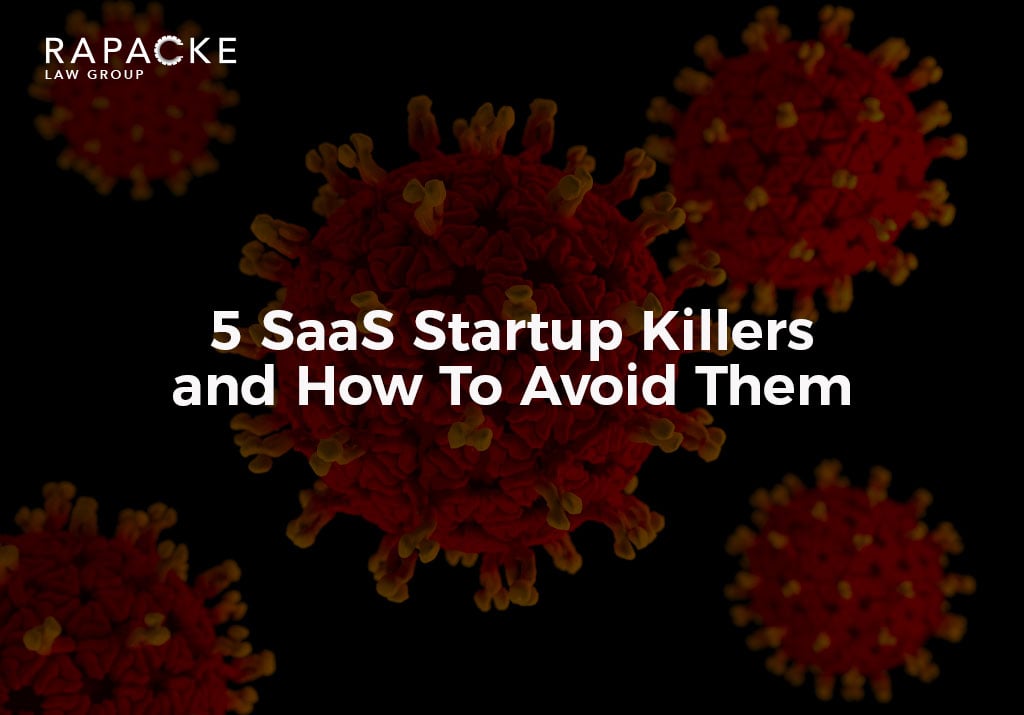For the last decade, the SaaS industry has been thriving. Fueled by a strong economy, shift to cloud-based systems, and a growing remote workforce.
But with the spread of COVID-19 and the resulting economic blow, every industry across the globe will certainly be facing new challenges.
Luckily, SaaS companies have very good margins and are typically built on a recurring revenue model which will likely lessen the blow compared with other industries.
To help prepare you for success in these uncertain times, we’ve put together a list of 5 SaaS Startup Killers and the steps you need to take to avoid them.
1. Lack of Market Knowledge
You have an idea for a SaaS product or service, and you know that other people will love it too. But what data do you have to back this up? Too many startup founders assume with pure optimism that their idea will succeed.
There are two main factors you need to research. First, get your product in front of potential customers, and see if there is any interest.
Second, is the market oversaturated? Find out how many other companies are already in the space doing what you want to do. High competition shouldn’t necessarily kill your idea. It should just make you focus harder on developing new features to differentiate your company and claim space in the market.
Be sure to speak with an experienced attorney to see if your key differentiating features can be protected and add this article to your reading list.
2. Lack of Marketing
You could have the best SaaS product in the world, but if people don’t know about it, then your startup will fail. Understanding how to market your company is an essential component to success early on.
The key is to avoid shiny object syndrome and start advertising on one platform (whichever your targeted users spend the most time on). Start testing early on and as often as possible. Get a deep understanding of your target customer’s pain points and write ads incorporating those pain points for testing to see which resonate most.
Once you hone in on what’s working and generating free trials or demos for a reasonable cost, double down and start increasing your advertising spend. Keep a close eye on your KPI’s (key performance indicators). In the testing stage, the most important KPI to focus on is the cost to acquire a free trial or demo.
Once you start filling your pipeline and converting trials into paying customers, you can begin to understand your CAC (Customer Aquisition Cost). Keep in mind, It’s not uncommon for SaaS companies to spend at least 3x the monthly subscription to acquire a customer.
If you find that you’re not converting enough free trials or demos into paying customers, reach out to them and get feedback so you can fix the issues and increase your paid activation rate. Gathering feedback is one of the best ways to identify issues and fix them early on.
3. Team Problems
“The two big startup killers are when there’s just no market for what you are doing, and team problems.” – Techstars co-founder and serial entrepreneur Scott Gerber knows a few things about potential startup pitfalls.
His statement includes some wise advice. One of the biggest killers to your new startup is letting team problems distract from the task at hand, growing your new business.
This can include several different issues, choosing the wrong partner, having an uneven equity split, no clear leader, or not having a plan for when someone leaves the company.
You can prevent all of these problems by doing some planning — thoroughly research potential investors. Then consider how to split the equity to ensure all parties stay committed in the long run.
Your third step is to create a clear authority structure for the startup. This will define the authority structure.
4. Failure To Hire Experienced Legal Counsel
Having the right lawyer can mean the difference between success and failure for your startup. A lawyer will ensure you have the proper documentation in place to protect the business, partners, and investors.
Then you’ll need legal advice to ensure all of your intellectual property (IP) is protected. This includes everything from your actual product to your brand name and logo. This will protect you from potential competitors infringing on your IP and stealing your business.
Once you begin to hire employees, legal counsel can ensure you comply with local employment laws. Finally, depending on your product or service, you may need legal counsel to challenge local ordinances and codes.
Learn what competent legal counsel can do for your startup
5. Lack of Passion
Startups require an enormous amount of time, energy, and attention. If you are not proud and passionate about your new business, your confidence will waver, and you will lose interest. As the leader of your new startup, if you become complacent, so will everyone below you.
Only venture into a startup that you are proud of and passionate about. This emotional connection will help you power through the challenges and stay focused on your end goal of success.




